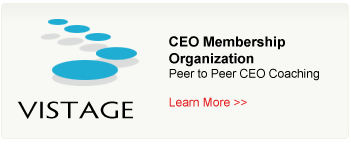The Death of Capitalism
Fri, Feb 20, 2009
Faves (books, sites, experts), Leadership Development, Supervision (managing direct reports), The Economy/Financial Crisis
If you dont know about Jim Blasingame, award winning small business advocate, coach, brain trust leader and radio host, you should (see link at end of this post).
Jim’s commentary always helps business owners and his questions always push my thinking. He asked me this morning if I were worried about the death of capitalism. I believe that the nature and size of government interventions in the worldwide recession is what prompted the question.
On reflection, my answer is yes but for two very different reasons. One threat to capitalism is tangible and eminently fixable. The other is harder to deal with. The first is the anxiety and near-paralysis that grips so many business owners these days — the depression inside of us. So much uncertainty. So much to deal with. So many hard choices. But this is addressable: by being proactive about your own state of mind and physical well-being, by “parenting at work (educating and calming your employees about getting through this unprecedented time),”realizing that surviving the next two or three years is victory enough, by taking actions now that support survival at the expense of cherished projects and, finally, by seizing the opportunities to create new revenue streams or make new deals with customers and suppliers that are mutually in support of survival.
The second threat to capitalism is the loss of trust that follows as sure as night follow day from widespread acceptance of cheating and the lack of powerful institutions to keep it in check. In every walk of life, standards have dropped. Government agencies that fail to protect the consumer (think food and drugs or toys); government agencies asleep at the switch or turning a blind eye to fraud; brand-name investment bankers who have no regret for feathering their nests at the expense of shareholders and other investors; food producers who endanger workers or ship tainted food. Bankers unrepentant for knowingly loaning money to unworthy borrowers. Corruption and lack of transparency. The list is endless.
Stephen M.R. Covey’s book, The Speed of Trust has it right. Trust is everything. It makes business work and work fast. It is the foundation of markets and trade. Its absence is a catastrophe. And that is the biggest threat to capitalism. For more about Covey’s work, see link at the end of this post.
What is the solution? In my view the media is failing in its investigative role. The government is still failing in its enforcement role. While the appointment as SEC chief cop of former federal prosecutor, Robert Khuzami is encouraging, hear the words of a friend of mine who is a certified fraud investigator: “The government does not have the talent to do a good job at detecting sophisticated fraud. It is like an internet security department without a large team of terrific young hackers.”
Transparency International, run in the U.S. by by sister (full disclosure) Nancy Boswell, addresses corruption in international procurement. Its behind the scenes work, its publications, its index of countries by the level of corruption has led to legislative changes, policy changes and more. We need its equivalent domestically. And I believe the key is marshaling together the various entities with a strong interest in ethics (e.g., Dow Jones ethisphere — see link at end of this posting) linking them together to use the web to do what the media has not done: find the truth, publish wrong-doing, name names, tap expert talent to explain how it’s done and what makes it possible, show what boards and other stakeholders can do to stem the tide and more. The millions of business owners and CEOs who play by the roles will be the better for it. And so will America.
That’s my view. What’s yours?
http://smallbusinessadvocate.com, http://smallbusinessadvocate.com, http://coveylink.com, http://ethisphere.com
Tags: capitalism, depression, economic crisis, economy, ethics, integrity, Leadership, Recession, small business, Trust
 Countless more ordinary people of equal talent never developed the leadership core required to run the show. Why not?
Countless more ordinary people of equal talent never developed the leadership core required to run the show. Why not?

I’m still learning from you, as I’m improving myself. I definitely liked reading everything that is written on your website.Keep the stories coming. I liked it!